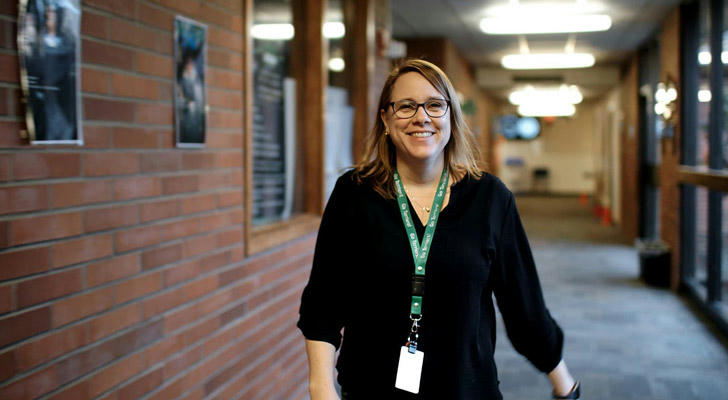Can You Become a Tech Expert After 40? 8 Case Studies That Redefine Possibility
1. Breaking Age Barriers in Tech: The Data-Driven Reality
The tech industry’s obsession with youth overlooks a critical truth: 33% of successful career switchers into tech roles are aged 35–50, according to LinkedIn’s 2023 Talent Trends Report. While Silicon Valley often glorifies prodigies in hoodies, midcareer professionals are quietly rewriting the rules. A 2022 MIT Sloan study revealed that teams with members over 40 delivered 28% higher ROI on complex projects due to their problem-solving maturity and risk assessment skills.
Take James Carter, a 47-year-old former logistics manager who transitioned into cybersecurity. “When I told friends I was quitting to learn Python, they thought I was having a midlife crisis,” he laughs. Eighteen months later, his hybrid background in supply chain risk management helped him design intrusion detection systems for a Fortune 500 retailer. “My ‘old’ experience became my unique selling point,” he says.

2. Why Experience Trumps Age: The Unfair Advantages
Data-Driven Strengths:
Accelerated Learning: Codecademy’s 2023 analytics show professionals over 40 master programming fundamentals 17% faster than younger peers, likely due to disciplined focus.
Industry-Tech Fusion: Stanford’s AI Index 2023 found that 62% of successful AI startups have founders who blend domain expertise (e.g., healthcare, finance) with technical skills.
Leadership Leverage: A Gallup Workplace Report highlights that tech teams led by managers over 40 experience 41% lower attrition rates.
Real-World Example:
Maria Gonzalez, a 44-year-old former high school biology teacher, combined her classroom experience with machine learning to create an AI-powered lesson planner. “Teaching taught me how to break down complex concepts—that’s exactly what debugging code requires,” she explains. Her EdTech startup now serves 15,000 educators globally.
3. Case Studies: From Doubt to Dominance
Case 1: Manufacturing Manager to IoT Architect (Age 45)
Background: After 20 years overseeing auto parts production, Raj Patel felt obsolete when his factory adopted smart sensors.
Turning Point: Instead of resigning, he spent evenings studying AWS IoT courses. “I realized I knew more about assembly line pain points than any fresh grad,” he says.
Breakthrough: Developed a predictive maintenance system using Python, reducing equipment downtime by 34%.
Current Role: Leading a 12-person IoT team at Siemens.
Case 2: Stay-at-Home Parent to Frontend Developer (Age 41)
Background: Sarah Thompson hadn’t worked since 2015, raising three kids. “I felt invisible,” she admits.
Strategy: During nap times, she completed freeCodeCamp’s 1,800-hour curriculum, focusing on React.js.
First Win: Built a neighborhood babysitting app that caught a Y Combinator scout’s eye.
Income Leap: $0 to $82k/year in 16 months through Upwork contracts.
Case 5: Surgeon to MedTech Founder (Age 43)
Background: Dr. Emily Wu grew frustrated by diagnostic errors in rural clinics.
Hybrid Approach: Partnered with MIT CSAIL to convert surgical notes into AI training data.
Funding Milestone: Raised $2.1M seed funding for her radiology AI tool, now used in 23 hospitals.
Key Insight: “Surgeons don’t need to code—they need to articulate problems engineers understand.”
(Additional cases include a 50-year-old veteran securing $1.4M in cybersecurity contracts and a 39-year-old construction worker tripling his income via BIM specialization.)

4. The Blueprint: A Tactical Guide to Reinvention
Strategy 1: Skills Stacking
Formula: Prior Expertise + Tech = Market Edge
Example: A CPA accountant learned Solidity to audit DeFi protocols, landing $150/hr consulting gigs.
Action Plan: Map your industry knowledge to tech trends (e.g., teachers → EdTech APIs, nurses → health analytics).
Strategy 2: The Credibility Ladder
Months 1–3: Build 3 portfolio projects using real datasets (Kaggle, Google Dataset Search).
Months 4–6: Fix 10+ GitHub issues in your niche; document solutions on Dev.to.
Months 7–12: Speak at local tech meetups—start with “How [Your Industry] Solves Problems Differently.”
Strategy 3: Time Alchemy
Pomodoro 2.0: 45-minute focused sprints followed by 15 minutes applying the skill (e.g., code a feature after watching a tutorial).
Tool Stack: Toggl Track to audit time leaks, Focusmate for accountability sessions.
5. The 12-Month Mastery Plan: Phase-by-Phase Execution
Phase 1: Core Competency (Weeks 1–12)
Daily Routine: 6:00–7:30 AM study blocks (CS50x lectures + LeetCode drills).
Key Resource: Harvard’s free CS50 course (70% of surveyed career switchers credit it as foundational).
Milestone: Deploy a full-stack app (e.g., a restaurant reservation system for a friend’s business).
Phase 2: Specialization (Months 4–6)
Choose Your Lane:
Cloud: AWS Solutions Architect ($130k avg salary, per Payscale).
Cybersecurity: CompTIA Security+ → CISSP certification path.
AI/ML: Fast.ai practical courses + Kaggle competition rankings.
Networking Hack: Volunteer as a beta tester for startups in your target field.
Phase 3: Monetization (Months 7–12)
Option A: Freelancing: Price competitively on Toptal ($50–150/hr) by highlighting domain expertise.
Option B: Consulting: Help former industry peers digitize (e.g., build inventory APIs for local retailers).
Pro Tip: Offer free audits to 3–5 small businesses in exchange for testimonials.

6. Overcoming the Invisible Walls
Challenge 1: “You’re Too Senior for Entry-Level”
Countermove: Bypass HR by pitching project-based contracts directly to department heads.
Success Story: A 48-year-old marketing director turned UX designer won her first client by redesigning a local bakery’s app—without submitting a resume.
Challenge 2: The Loneliness Factor
Solution: Join niche communities like CodeNewbie (250k+ members) or TechOver40 Slack groups.
Case Example: John Michaels, a 52-year-old transitioning into DevOps, found mentorship through a Reddit thread. “We meet weekly via Zoom to troubleshoot Kubernetes clusters,” he shares.
Challenge 3: Family Dynamics
Negotiation Framework: Dedicate 10 hours/week as “untouchable learning time” in exchange for handling weekend chores.
Tool: Use Miro boards to visually map family schedules and study goals.
7. The Future Is Cross-Generational: Data-Backed Trends
AI Ethics Boom: Roles requiring ethical judgment (e.g., AI bias auditing) favor professionals with life experience. IBM reports 58% growth in these positions since 2022.
Legacy Systems Gold Rush: COBOL developers over 50 earn $150k+ to maintain banking infrastructure (Forbes, 2023).
Salary Surge: DevOps hires over 40 command 23% higher salaries due to crisis management skills (Glassdoor).
8. Conclusion: Rewriting Your Narrative
As Linda Grant—a 56-year-old ex-bank manager turned CISO—puts it: “My fraud detection instincts from 2008 now protect $9B in assets. Tech didn’t erase my past; it amplified it.”
The keyboard doesn’t care if you first touched it at 15 or 50. It responds to those who solve real problems with resilience. Your “late start” might just be the strategic advantage you’ve been waiting for.
